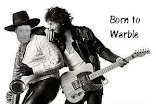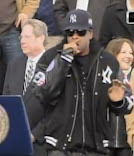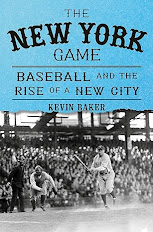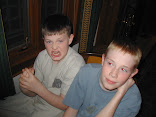Like the secondary Bond villain, or that last
science-fiction monster that you know is still lurking out there, it’s
back! Epic Yankees Flameout
Seasons, Episode Eight!
This will, I promise, be the last one of the
year…until we get around to assessing this dubious season, anyway. But what a doozy!
Yankees
79-83, 5th in a seven-team division.
Yes! It’s the notorious ‘Speed Team” of
1982! The memory of which still
sends chills down the spines of so many of us who were permanently scarred by
its appearance.
This was the only Yankees team between 1973 and
1989—the beginning of the Plague Years—to finish with a losing record. It came within a single game of
finishing tied for last in a tough AL East, 16 games behind the Milwaukee
Brewers.
It was, as well, the last time before this
season that a Yankees team so completely disappointed expectations. But as usual, we can learn so much from
history about today.
Background:
Basically, an imperious egomaniac who had
complete control of the team seized upon a ridiculous new theory of how the
Yankees should play ball, and no one could talk him out of it. (Hmm, that does sound familiar.)
The individual we’re talking about, of course,
was George Steinbrenner, and he was about to embark on the period of his most
destructive insanity.
The Madness of King George had begun the year
before, when he insisted on trying to win the World Series while playing one of
the greatest clutch hitters of all time, Reggie Jackson, as little as
possible. The Yanks collapsed,
blew a 2-0 lead in games, and Steinbrenner got into a humiliating elevator
brawl in L.A., then apologized to the entire City of New York, on behalf of his
team.
This was not uncommon, end-of-the-year behavior
for the Mad King, before or after, but this time he had a theory of how to make
things better—always a bad idea.
The Yankees, George decided, were much too slow
and placid. He would build a
“Speed Team” based on the success that teams in places such as Kansas City,
Cincinnati, St. Louis, and Houston were having, because that was obviously the
future of the sport.
Somehow, it had eluded George that those teams
were playing all their home games on a carpet, while the Yankees played on real
grass. Of course, many of George’s
“baseball people,” in Florida and New York, pointed this out to him, but this
was already the era in which the Mad King was busy chasing them away to win
pennants and World Series in many other cities.
Nothing would do but that the Yanks signed or
traded for the likes of Ken Griffey, Sr. and Dave Collins, while letting Reggie
go off to free agency. The
Yankees, it was decided, were now going to run, run, run!
What
happened:
Well, not much running, after all that. The Yanks stole all of 69 bases, good
for just 9th in the AL, and were caught 45 times. At the same time, the team proved very
poor at catching the ball, finishing 10th in the league in errors,
and 9th in fielding percentage.
What’s more, as spring training began to show
just what a miserable offense this would provide, George as usual hedged his
bets, and started scrambling to acquire power bats.
Set-up man Ron Davis and minor-league shortstop
Greg Gagne were sent to Minnesota for Roy Smalley, an awful clutch hitter and
someone who had all the range and arm strength of a granite post at short.
This didn’t help much, and so a seemingly
endless succession of other has-beens and washouts were brought in to provide
the missing home runs (this does sound
familiar): John Mayberry, Lee
Mazzilli, Butch Hobson. At the
same time, the Yankees had accumulated a stunning number of guys who had either
passed their expiration date, or chose 1982 to have their worst seasons in New
York: Graig Nettles, Bucky Dent,
Rick Cerone, Barry Foote, Dave Revering—even Bobby Murcer.
Other stars to be—Don Mattingly, Steve Balboni—just
weren’t quite there yet, George backed out of what would have been a great deal
for Al Oliver at the last minute, and the commissioner canceled a great one for
slugging first baseman Jason Thompson, because he hated us.
At the same time, the pitching began to
breakdown precipitously. Guidry
had his first mediocre year, Dave Righetti—after being Rookie of the Year in
1981—had such an awful start that he was sent back down to Triple-A for awhile,
Mike Morgan got off to a good start but then flopped, and Roger Erickson was
just bad.
Panicking when he saw how bad the pitching
looked, too, George at the last minute rushed out Gene Nelson—considered a
can’t miss, future star with a reported command of five pitches—to obtain
Seattle reliever Shane Rawley, who was to be converted to a starter; and
reacquired Doyle Alexander, in part for relief pitcher Andy McGaffigan.
The usual suspects in the media gushed on cue
about how well the Yankees had done in picking up so many stars for their young
players. And…both men flopped on
cue, Alexander going 1-7 with a 6.08 ERA before hitting the DL, while Rawley
was 11-10, 4.06.
The season was a disaster from literally Day 1,
which was snowed out. The Yankees
played an Easter Sunday doubleheader instead, in which Guidry lost a 4-1 lead
in the opener, the Yanks rallied to tie, and Goose Gossage surrendered the
losing run in the 12th.
In the second game, they grounded into three double-plays and lost, 2-0.
So it went. It would be hard to say there was even a highlight in this
woeful season—unless you count April 27th, when Reggie made his return
to New York in a rain-shortened, 7-inning game, and homered off Guidry—one of
39 he would hit, to tie for the AL lead.
Louisiana Lightning quietly applauded him in
this glove, while the crowd of over 35,000—I was among them—leapt to our feet
and chanted, “Reg-gie!
Reg-gie”—followed quickly by a new chant:
“Steinbrenner sucks! Steinbrenner sucks!”
Poor Bob Lemon, still dazed after the premature
death of his son the year before, was forced out after just 14 games, with a
6-8 record. Gene Michael, whom
George had just fired the season before, was pressed back into duty on the
bench, but little improved.
The season’s nadir came on August 3rd,
with a big, rowdy crowd of over 34,000 sitting through numerous rain delays—it
seemed to rain A LOT that year—for a twi-night doubleheader, once again versus
the White Sox. I was, again, one
of the poor slobs on hand.
Shane Rawley, who was one of the fans’ main
whipping boys all year long, gave up just one run, but lost the opener,
1-0. This did not make people
happy. The second game turned into
a rout, eventually ending, 14-2.
By late in the game the crowd was thoroughly drunk and completely
abusive.
Their main target, for some reason, was poor
Ken Griffey, who was a fine, well-rounded ballplayer throughout his time in New
York, but who the fans went after more vociferously that season than I have
ever heard them get on any other ballplayer.
Before it was all over, Steinbrenner actually
made Bob Sheppard, the revered “Voice of the Yankees” go on the PA and apologize
to the fans, while promising us a free ticket to make up for the night’s
debacle. Most of us responded with
more rousing choruses of “Steinbrenner sucks!”
After the game, the team’s record was just
50-50, and Stick was fired, replaced by Clyde King. But things only got worse. After early June, the team never did rise above 4th
place.
Bright
spots:
Few and far between.
Willie Randolph was his usual, steady self at
second. Jerry Mumphrey, whom George had also tried to bury on the bench in the 1981
Series, hit .300, with 10 triples.
Between them, Griffey and Collins DID account for one-third of the
team’s stolen bases, though neither really had a good year. Butch Wynegar came over from the Twins
and played well at catcher, while Sweet Lou Piniella, now 38, hit .307.
Gossage had another 30 saves in the pen, while
Tommy John generally pitched well and got himself traded to California down the
stretch. There, he and Reggie
would’ve made the World Series, if they had not had Gene Mauch for a manager.
The best season of all was had by Dave
Winfield, who had 106 RBI and 37 homers—the most hit by a righthanded Yankee
since Joe DiMaggio. It was an
impressive performance in a Yankees Stadium that was still built against righty
hitters (though not as extreme as in Joe D.’s time).
Winfield also played his usual, outstanding
game in the field, with 16 assists, but it mattered little. Yankees fans who had not forgiven him
for his World Series flop the year before—or his record-breaking salary—booed
him mercilessly.
What
happened next:
Well, it was the end of the Speed Team. And…the return of Billy Martin, back
from Oakland. Billy, as usual, got
the club into contention again—and, as usual, almost as quickly wore out his
welcome. He got himself fired after
a 91-71 season fizzled in September.
More important was the continuing exodus of top
baseball front office talent from the Yankees, and the continuing discard of
good young arms before, during, and just after the 1982 season.
Davis, Nelson, McGaffigan, Morgan, Jay
Howell—none of these guys ever attained the true stardom forecast for
them. But they ended up putting
together some excellent years as middle or late relievers (and in Morgan’s
case, a mid-rotation starter).
Throughout the rest of the decade, the Yankees would fall short again
and again because they missed exactly that sort of depth in their staff—a
failing that would be duplicated nearly 20 years later, from 2001-2008.









































8 comments:
When Winfield connected, which he did quite frequently, it was always impressive. Stanton puts much the same charge in the ball today, when he's not waving at it on his way back to the dugout. Judge is closer to Winfield's all-around play.
The Steinbrenner Sucks episode was classic, a truly well-deserved serenade. I believe he stopped sitting in the stands after that.
That was a terrible season.
The 80s remain a blur. I was in Nebraska and had a part-time job at a local radio station that broadcast the Kansas City Royals games. I listened to a lot of Royals games in those days as I played the local commercial breaks during the games. Much better baseball.
Fortunately (or not), I was a college student then and remember very little of that time -- baseball related or not.
Those were indeed very dark days.
Yeah, KC was lucky enough to have a terrific manager then: Dick Howser.
The Yanks had to fire him, though. Sure, he won 103 games. But his third base coach made a (barely) bad call in the playoffs, so he had to go.
And of course the presence of Griffey Sr. and the return of Martin as part of the fallout would, supposedly, lead to the incident in '83 that denied the Yankees the chance to ever sign Ken Griffey Jr. years later.
Ah yes, the short-lived Bronx Burners. I still remember a pic from spring training where Pinella and Nettles were being instructed on how to slide. Evidently, idiot George expected THEM to steal bases too (oy).
Good point, Anon!
And YES, steve, I had forgotten that one: the "Bronx Burners." Oy. Was it Nettles who called them that?
I really want the world to know about this great man who brought back happiness into my life again after my husband left me and the kids 3 years ago for another women online when i contacted Dr Believe he cast a love spell for me within 48 hours my ex husband start calling me and begging for forgiveness for everything that have happened between us. I was so happy to have my family back together with love again here is the email of Dr Believe via believelovespelltemple@gmail.com a man with the great powers you can also call him or add him on Whats-app: +2348156148821
God bless you
I am very grateful for your help in my marriage.
Post a Comment